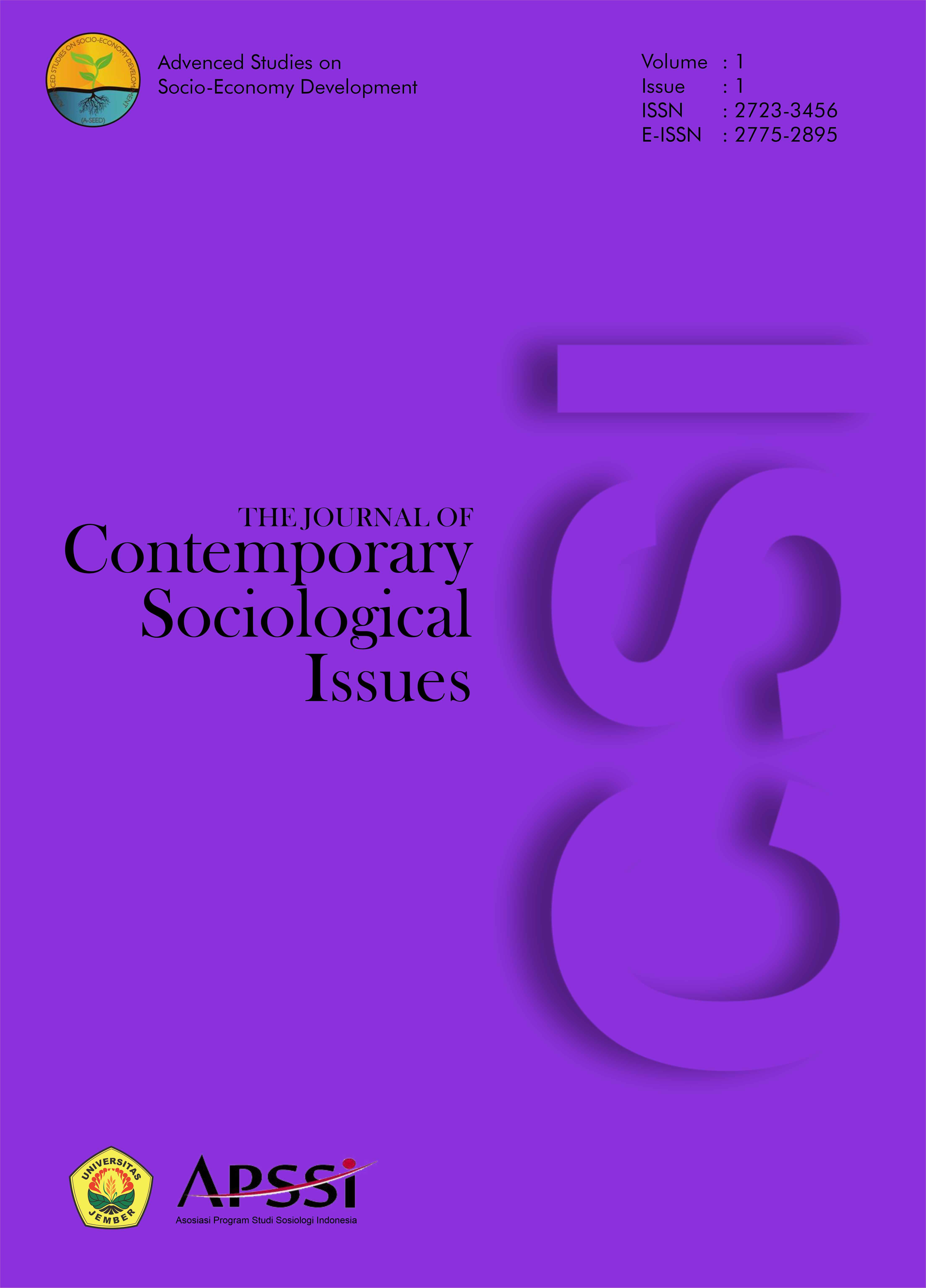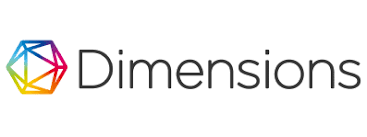Buying Voters
Money and Political Transaction in Legislative Elections
DOI:
https://doi.org/10.19184/csi.v1i1.21508Keywords:
clientalism, Transaction Cost Politics, Money PoliticsAbstract
Political transaction has become a common phenomenon that accompanies elections. It does not only occur in countries with well-established democratic systems, but also in developing nations. Academic engagement with the concept of democracy increasingly explores its links to the chaotic commodification of electors' votes. Political transactions can trigger several problems, such as political structures, citizenship awareness, or cultural relations issues that form a democratic structure of the country. Political transactions are processes of negotiation that take place between elites. This paper explores the contestation of social positions to gain electors' votes in the context of the legislative election conducted in Banyuwangi. The strategies used by legislative candidates to obtain votes through transactional relationships demonstrates the various actors involved in general elections. First, the researcher argues that democratization has transformed the sacred position of the elites, especially the religious elite. Second, the complexity of relations between elites presents the position of a broker, which emphasizes the character of democracy in Indonesia, which is marked by issues of clientelism. Thus, it is essential to observe Indonesia's political praxis from the institutional practice point of view and its social problems that distort democratic values.
Keywords: Clientelism, Transaction Cost Politic, Money Politics
Downloads
References
Abenza, Omar Ahmed. “The Public Choice Theory, and Its Capacity to Explain Unpopular Nationalist Policy Decisions.†Public Choice 106, no. 1 (2001): 1–6.
Aminuddin, M. Faishal, dan Natasha Hassan Attamimi. “From Retail to Grocery: Money Politics in 2014 Indonesian Legislative Election.†Politik Indonesia: Indonesian Political Science Review 4, no. 1 (2019): 99–120. https://doi.org/10.15294/ipsr.v4i1.12609.
Amrullah, M. Arief. “KORUPSI, POLITIK DAN PILKADAL DALAM PERSPEKTIF PEMBERANTASAN KORUPSI DI INDONESIA.â€[ CORRUPTION, POLITICS AND PILKADAL IN THE PERSPECTIVE OF CORRUPTION ERADICATION IN INDONESIA] Syiar Hukum : Jurnal Ilmu Hukum 11, no. 3 (2009): 283–95. https://doi.org/10.29313/sh.v11i3.549.
Aspinall, Edward, dan Ward Berenschot. Democracy For Sale, Elections, Clientilism, and the State in Indonesia. Itha: Cornell University Press, 2019.
Brinkerhoff, Derick, dan Arthur Goldsmith. Clientelism, Patrimonialism and Democratic Governance: An Overview and Framework for Assessment and Programming. USA: Abt Associates Inc, 2002.
Caporaso, James A, dan David P Levine. Theories of Political Economy. USA: Cambridge University Press, 1992.
Henisz, Witold, dan Bennet Zelner. “Explicating Political Hazards and Safeguards: A Transaction Cost Politics Approach.†Industrial and Corporate Change 13, no. 6 (2004): 901–15. https://doi.org/10.1093/icc/dth036.
Irham, Muhammad Aqil. “Korupsi Demokratis dalam Partai Politik: Studi Kasus Penyelenggaraan Pemilukada Lampung.†[Democratic Corruption in Political Parties: A Case Study on the Implementation of the Lampung Pemilukada] MASYARAKAT: Jurnal Sosiologi 21, no. 1 (4 November 2016): 35–56. https://doi.org/10.7454/mjs.v21i1.4799.
M. Faishal Aminuddi, Natasha Hassan Attamimi. “From Retail to Grocery : Money Politics in 2014 Indonesian Legislative Election.†Politik Indonesia: Indonesian Political Science Review 4, no. January (2019): 99–120.
Muhtadi, Burhanuddin. “POLITIK UANG DAN DINAMIKA ELEKTORAL DI INDONESIA : SEBUAH KAJIAN AWAL INTERAKSI ANTARA MONEY POLITICS AND ELECTORAL DYNAMICS IN INDONESIA :,â€[ MONEY POLITICS AND ELECTRICAL DYNAMICS IN INDONESIA: AN INITIAL STUDY OF INTERACTION BETWEEN M ONEY POLITICS AND ELECTORAL DYNAMICS IN INDONESIA] 2013, 41–57.
Muhtadi, B. “Politik Uang dan Dinamika Elektoral di Indonesia: Sebuah Kajian Awal Interaksi antara ‘Party-ID’ dan Patron-Klien†[Money Politics and Electoral Dynamics in Indonesia: An Early Study of the Interaction between 'Party-ID' and Patron-Client]10 (2013): 41–58.
Oktavinanda, Pramudya A. “Public Choice Theory Dan Aplikasinya Dalam Sistem Legislasi Indonesia [Public Choice Theory and Its Application in Indonesian Legislation System].†SSRN Scholarly Paper. Rochester, NY: Social Science Research Network, 8 Oktober 2012. https://doi.org/10.2139/ssrn.2158542.
Rachbini, Didik J. Ekonomi politik: paradigma dan teori pilihan publik. [Political economy: paradigms and theories of public choice]Ghalia Indonesia, 2002.
Schofield, Norman, Gonzalo Caballero, dan Daniel Kselman, ed. Advances in Political Economy: Institutions, Modelling and Empirical Analysis. Berlin, Heidelberg: Springer Berlin Heidelberg, 2013. https://doi.org/10.1007/978-3-642-35239-3.
Sofia, Alfira, dan Budi S. Purnomo. “Evaluation of Election Cost-Value for Money Based Toward Good Government Governance,†126–31. Atlantis Press, 2016. https://doi.org/10.2991/isclo-15.2016.24.
Várdy, Felix, dan John Morgan. “Corruption, Competition, and Contracts: A Model of Vote Buying.†IMF Working Papers 06, no. 11 (2006). https://doi.org/10.5089/9781451862713.001.
Yustika, Ahmad Erani. Krisis finansial, kontestasi politik, dan prospek ekonomi 2009: proyeksi ekonomi Indonesia, 2009. [Financial crisis, political contestation, and economic prospects 2009: Indonesia's economic projections, 2009.]Disunting oleh INDEF (Organization). Jakarta: INDEF, 2008.
Downloads
Published
Issue
Section
License
Copyright (c) 2021 M. Iqbal Fardian

This work is licensed under a Creative Commons Attribution-NonCommercial-ShareAlike 4.0 International License.








